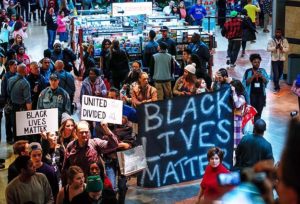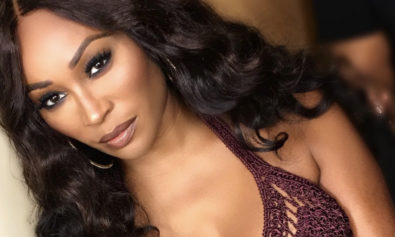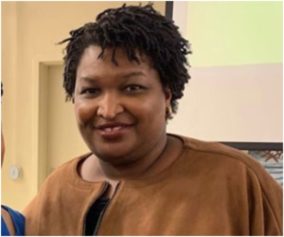By Clarissa Bannor
African-Americans have been on the pulse of injustice and discrimination for decades, and this generation is no different. We chant “Black lives matter” because it seems as though they often don’t. “Black lives matter” is a rallying cry, for every Black person to wake up and come together. A cry for everyone to persist for justice. But is every Black person heeding the call? Have Africans in America fallen for the storyline that we are different from Blacks in America because we have a homeland and we view America as our adopted home? Or do we see the struggle of African-Americans as our struggle too?
For Africans, life back home is pretty homogenous. Everyone looks like you, talks like you, and there is little concept of race. Race, and racial discrimination is learned in America. By being Black first, we experience the same subtle biases darker-skinned people are subjected to around the world. However American society treats African immigrants differently and we feed into it. By stressing that we, or our parents, emigrated to America from Africa, people perceive us as different, and are willing to give us that job, that benefit of the doubt, or that chance at friendship. Americans become disarmed and are more open to learning about who we are, without extending that same curiosity for that southern-born African-American, wise-crackin’ sista. Our smartness, intelligence, industriousness, are often attributed to our Africaness. This trivial favor gives us a false sense of superiority—and security.
Our transient, hard-working, immigrant parents convince themselves they are only here to work, make money, take advantage of economic opportunities and return home. Our immigrant parents default to a “sit and watch” approach because they don’t understand the great, far-reaching history of the struggle. But we, the younger generation of African immigrants, understand the stakes. Not only do we Black people share the repercussions of breathing while Black, we also share a collective history. There are parallels in our stories that our forbearers tend to forget. Our parents are quick to wax nostalgic about Osagyefo Dr. Kwame Nkrumah and his accomplishments in liberating Ghana. They forget that Kwame Nkrumah also had sights on our cousins in America. In his book, The Struggle Continues, Kwame Nkrumah’s words written over 50 years ago still speaks to the struggle we are having in 2015.
“In spite of the long and untiring work in education and organization of the pioneers of ‘Civil Rights’; in spite of the painstaking efforts made by African-American citizens of the United States to educate their children, and by hard work to achieve ‘acceptance’ in American society, African-Americans have remained only barely tolerated aliens in the land of their birth, the vast mass of them outside consideration of basic human justice.”
The Black Power movement in the 1960s paralleled the struggle for African independence, but how many African parents educated us of our connection to Marcus Garvey, through preceding revolutionaries who stood for freedom and independence for Black people everywhere? In fact, many civil rights heroes like Malcolm X, Kwame Toure (Stokley Carmichael), Nina Simone, Richard Wright, Muhammad Ali, all went to the African continent in support of the struggle for African independence from colonial powers.
Angela Davis, Mariam Makeba, Huey P. Newton, Kwame Nkrumah, Martin Luther King, Jr. and Nelson Mandela were essentially fighting the same fight. The fight for physical and mental emancipation, decolonization, independence and liberty are ties that bind us together. From “we shall overcome” to “Amandla! Awethu!” Black people on the continent, and in the west, have been in this thing together. Our generation of Africans do well to draw these parallels from the past, and understand that “Black Lives Matter” is no different.
At this very time our voices should be strong and unified in support of the “Black Lives Matter” movement that Opal Tometi, a Nigerian-American, and her African-American partners, Alicia Garza and Patrisse Cullors founded. The Black Lives Matter campaign gives me hope that we are heeding the lessons learned from past Pan-African leaders and civil rights leaders alike.
If there’s anything the #GrowingUpBlack hashtag taught us, it is that we are the same people—whether we eat fufu and soup, or not. We have a moral and self-preserving responsibility to fight injustice from inside the belly of the beast alongside our home-grown cousins. Africans in the middle should understand this and should not draw the line because we are children of immigrants. We should understand our cousins just arrived 200 years before us—but we are cut from the same cloth—and in a dark alley somewhere, the cops would know no difference.
Clarissa Bannor is a Ghanaian-American writer and digital storyteller who’s blog, ThisAfropolitanLife.com, weaves African identity, culture, history and style with everyday life. Follow her: @afropolitanLife on Twitter | ThisAfropolitanLife on Facebook | @ThisAfropolitanLife on Instagram



